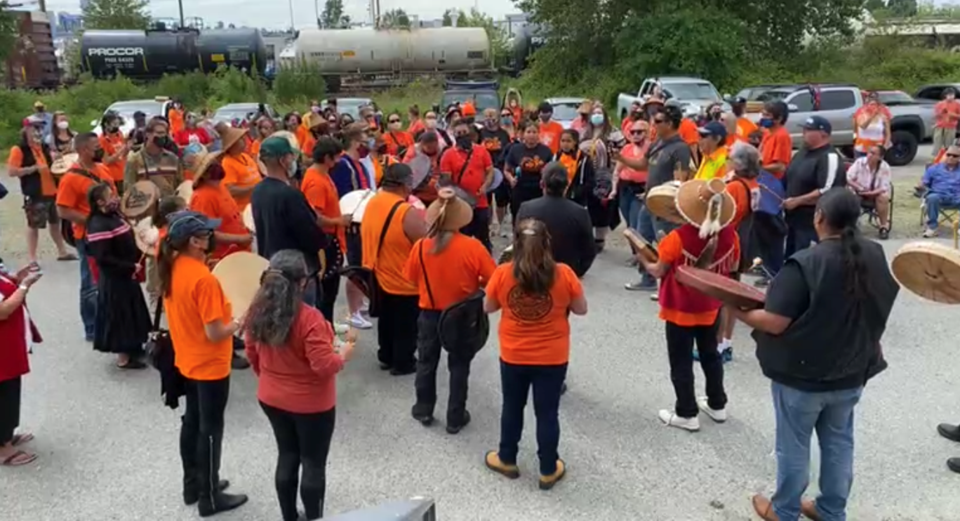The Squamish Nation is calling for all cemeteries, residential school sites, and unmarked graves where Indigenous children may have been buried to be identified, in the wake of the discovery of children buried at the Kamloops Indian Residential School last week.
Doing so was Action 75 of the Truth and Reconciliation Commission's 97 calls to action.
Action 75 reads: "We call upon the federal government to work with provincial, territorial, and municipal governments, churches, Aboriginal communities, former residential school students, and current landowners to develop and implement strategies and procedures for the ongoing identification, documentation, maintenance, commemoration, and protection of residential school cemeteries or other sites at which residential school children were buried. This is to include appropriate memorial ceremonies and commemorative markers to honour the deceased children."
The Nation's call joins a growing chorus of others, such as the Federation of Sovereign Indigenous Nations (FSIN) and Mary Ellen Turpel-Lafond, of the University of British Columbia’s Indian Residential School History and Dialogue Centre who are calling for the government to find and identify all sites that could have Indigenous youth buried.
"On behalf of Indian Residential School Survivors and their descendants, we join hearts with Tk’emlúps te Secwépemc to mourn the deaths of the 215 Indigenous children," wrote the Squamish Nation in a statement to The Squamish Chief on Monday.
"This discovery is one that affects all of us, resurfacing generations of trauma that is felt in waves throughout our community. We must hold each other up and look to our culture to help us through this difficult time."
The Kamloops Indian Residential School and St. Paul’s Indian Residential School in North Vancouver were just two institutions that thousands of Squamish, Musqueam, Tsleil-Waututh, and other Indigenous children were forced to attend, the statement notes.
"These children would have been Elders and members of our communities today, and we must honour them by joining forces to urgently call for Action 75 of the Truth and Reconciliation Commission."
Ten out of the 94 Calls to Action of the Truth and Reconciliation Commission from 2015 have so far been completed.
"We as a Nation reaffirm our commitment to the remaining calls and we urge the federal government, all institutions, First Nations leaders, and people of Canada to demand the implementation and completion of this work. What the world has learned this past week from Kamloops is a moment for country-wide reflection, but also an action to urgently repair the intergenerational harm done to our peoples."
A Squamish Nation ceremony in memory of the children, which included speeches, drumming and singing, was held in North Vancouver on Monday.
For those struggling to cope in the wake of this discovery, the National Indian Residential School Crisis Line is available to provide support (1-866-925-4419). In B.C., a toll-free First Nations and Indigenous Crisis Line (1-800-588-8717) is offered through the KUU-US Crisis Line Society. Both Crisis Lines are available 24 hours a day, seven days a week.



